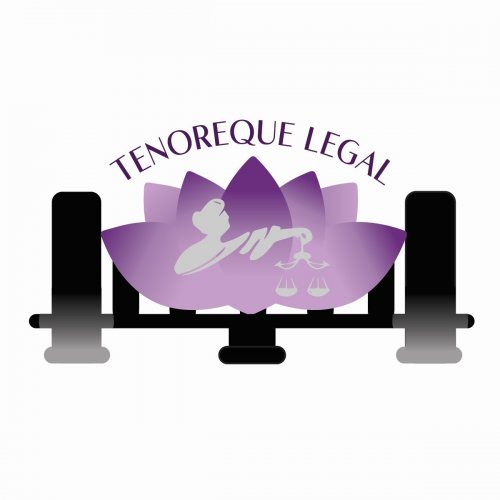Best Education Law Lawyers in Trinidad and Tobago
Share your needs with us, get contacted by law firms.
Free. Takes 2 min.
Or refine your search by selecting a city:
List of the best lawyers in Trinidad and Tobago
About Education Law in Trinidad and Tobago
Education Law in Trinidad and Tobago encompasses a range of legal issues that affect the educational sector. This includes the laws and regulations governing the administration of schools, students' rights, teachers' rights, educational policies, and the implementation of these laws by educational authorities. The legal framework ensures the provision of inclusive, equitable, and quality education, supporting lifelong learning opportunities for all students. This area of law also deals with issues pertaining to educational funding, special education services, and maintaining a safe educational environment.
Why You May Need a Lawyer
There are several situations where individuals or organizations may require legal assistance in Education Law:
- Disciplinary Issues: Parents and students may need legal advice if there are disputes involving student suspensions, expulsions, or disciplinary actions taken by educational institutions.
- Special Education Needs: Families seeking appropriate accommodations for children with special education needs may encounter legal challenges requiring expert navigation.
- Staff Employment Matters: Teachers and school staff may face legal issues related to employment contracts, wrongful termination, discrimination, or workplace harassment.
- Policy and Compliance: Schools and educational administrators might require legal advice to ensure compliance with educational laws and regulations, including curriculum requirements and safety standards.
- Discrimination Claims: Legal guidance may be necessary to address allegations of discrimination based on race, gender, disability, or other protected categories within the educational system.
Local Laws Overview
In Trinidad and Tobago, the Education Act is the primary legislation regulating education. It outlines the responsibilities of the Minister of Education and sets the framework for the management of public and private schools. Key aspects of education law include:
- Compulsory Education: The law stipulates the compulsory school age for children, which ensures that all children have access to basic education.
- Curriculum Development: The Act outlines the standards and procedures for curriculum development and the establishment of educational programs.
- Special Education: Specific provisions address the education of students with special needs, ensuring they receive appropriate support and resources.
- Teacher Qualifications: Laws mandate the qualifications and certifications required for teaching professionals.
- School Governance: Regulations guide the management and operation of both public and private schools, including admissions policies and governance structures.
Frequently Asked Questions
What is the compulsory school age in Trinidad and Tobago?
The compulsory school age in Trinidad and Tobago is from five to sixteen years old.
Can a student be expelled without a formal hearing?
No, students are entitled to a formal hearing before being expelled, ensuring their right to due process is respected.
What rights do students have if they face discrimination at school?
Students have the right to a discrimination-free educational environment. They can file complaints and seek legal remedies if they face discrimination based on race, gender, disability, or other protected categories.
Are schools required to provide support for students with special needs?
Yes, schools are mandated to provide necessary accommodations and support for students with special educational needs.
What legal actions can a parent take if their child is bullied at school?
Parents can report the bullying to school authorities and seek further legal assistance if necessary, especially if the school fails to address the issue adequately.
Can teachers be terminated without cause?
Generally, teachers cannot be terminated without cause, and any termination must comply with the terms outlined in their employment contract and relevant labor laws.
Who develops the school curriculum in Trinidad and Tobago?
The Ministry of Education is responsible for developing and regulating the school curriculum across the educational institutions in Trinidad and Tobago.
What recourse do parents have if a school is non-compliant with educational laws?
Parents can file complaints with the Ministry of Education or seek legal counsel to ensure schools comply with established educational laws and regulations.
Are private schools subject to the same regulations as public schools?
While private schools enjoy some degree of autonomy, they are still subject to specific regulations and must adhere to national educational standards and policies.
Do parents have a say in school governance?
Parents can often participate in school governance through parent-teacher associations or school boards, depending on the school’s policies.
Additional Resources
For individuals seeking further information or legal advice, the following resources may be helpful:
- Ministry of Education: The government body overseeing education policies and implementation.
- Trinidad and Tobago Unified Teachers Association (TTUTA): A key organization representing educational professionals.
- Education Facilities Company Limited (EFCL): Engages in developing and maintaining school infrastructure.
- Legal Aid and Advisory Authority: Provides legal assistance and advice for those in need.
Next Steps
If you require legal assistance in Education Law, consider the following steps:
- Research: Begin by understanding your rights and obligations under existing education laws in Trinidad and Tobago.
- Consultation: Schedule consultations with legal professionals specializing in Education Law to discuss your specific issues.
- Documentation: Gather all necessary documents and evidence related to your legal issue to present to your legal advisor.
- Representation: If legal action is needed, engage a lawyer who can represent you and guide you through the legal process efficiently.
Lawzana helps you find the best lawyers and law firms in Trinidad and Tobago through a curated and pre-screened list of qualified legal professionals. Our platform offers rankings and detailed profiles of attorneys and law firms, allowing you to compare based on practice areas, including Education Law, experience, and client feedback.
Each profile includes a description of the firm's areas of practice, client reviews, team members and partners, year of establishment, spoken languages, office locations, contact information, social media presence, and any published articles or resources. Most firms on our platform speak English and are experienced in both local and international legal matters.
Get a quote from top-rated law firms in Trinidad and Tobago — quickly, securely, and without unnecessary hassle.
Disclaimer:
The information provided on this page is for general informational purposes only and does not constitute legal advice. While we strive to ensure the accuracy and relevance of the content, legal information may change over time, and interpretations of the law can vary. You should always consult with a qualified legal professional for advice specific to your situation.
We disclaim all liability for actions taken or not taken based on the content of this page. If you believe any information is incorrect or outdated, please contact us, and we will review and update it where appropriate.
Browse education law law firms by city in Trinidad and Tobago
Refine your search by selecting a city.














